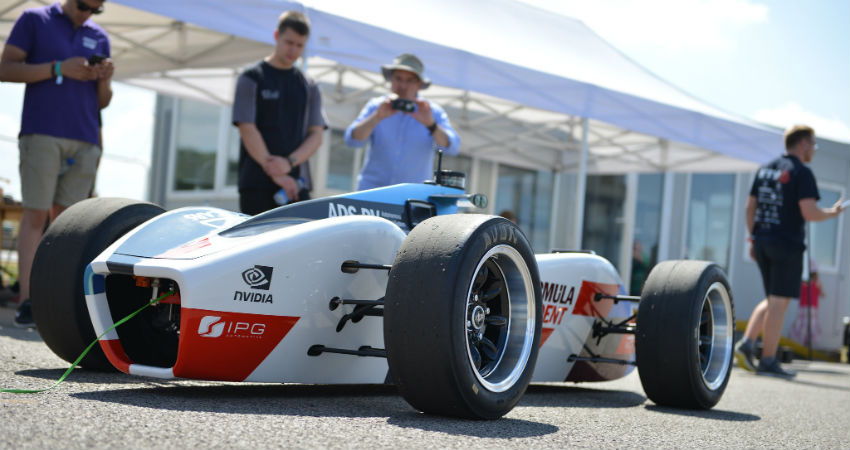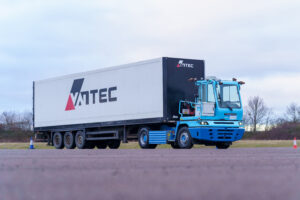Back in April, university campuses were rapidly closing, with students having to leave the country or quarantine in the UK and timelines thrown into chaos as millions of expectations about summer 2020 had to quickly change.
For the organisers and student teams of the Formula Student AI competition, the worldwide COVID-19 pandemic brought a brand new challenge. Normally the students either use the autonomous-ready vehicle provided by the IMechE, or bring their own vehicles, to compete against each other on track at Silverstone. Adhering to government guidelines, the event would be impossible to hold.
Or would it? The IMechE team, with help from StreetDrone’s Holly Watson Nall as Head Statics Judge for FS-AI, began to organise a fully virtual Formula Student competition, the very first to be attempted around the world.
‘We soon realised we had a great opportunity to bring something new to the competition,’ Holly explains. ‘With the students not being able to access their physical hardware or vehicles, they would have to work in the virtual world instead. We wanted to reward and give feedback for all their algorithm work during the last 12 months, so we turned to simulation.’
This idea brought a new event to the competition this year, called Simulation Development. This encouraged teams to improve their simulators or build one for the first time- all incredibly relevant development work for their 2021 systems, and allowing remote working for students. Teams were judged on their quality and understanding of their autonomous vehicle software stacks in environments such as CARLA and Gazebo, while simulating the various on-track events from the real competition.
‘The competition was a big success,’ Holly concludes. ‘We have nearly doubled our entry list up to 7 student teams this year, and as always had a fantastic judging team of industry experts.
The quality of the teams this year was clear from the outset. As the judges carefully scored each team’s events we realised this was going to be a pretty exciting and close competition! The top teams in each event were consistently scoring over 70% in the marks, and all teams had brought a high level of detail and clear understanding of autonomous driving systems. All returning teams had upped their game and we were joined by new universities, challenging for top spots.’
For the ADS class (where the teams design and build their own autonomous vehicles), Edinburgh University followed their impressive form from 2019 to win the class overall in 2020.
For the DDT class (where the teams use the provided IMechE vehicle), Oxford Brookes won the top spot by an incredible 2.2 points (with a total of 399 points!) over newcomers Ain Shams University.
For the new event Simulation Development, Oxford Brookes were the winners with their Gazebo pipeline, using their simulation to thoroughly evaluate sensor setups and improve their driver models. They also showed a clear understanding of the limitations of simulation for CAV development. Brookes have published their results in a paper to be found here. The full results can be found here.
Of course, simulation can only take CAV development so far. Eventually, cars will hit the track once more and teams will get the chance to see how their virtual environments compare with the real world. We at StreetDrone can’t wait to support FS-AI once again in 2021 and see the autonomous cars on track battling it out!
To read more on open-source simulation, click here, or to find out how StreetDrone can accelerate your university’s autonomy programme, please get in touch at info@streetdrone.com




